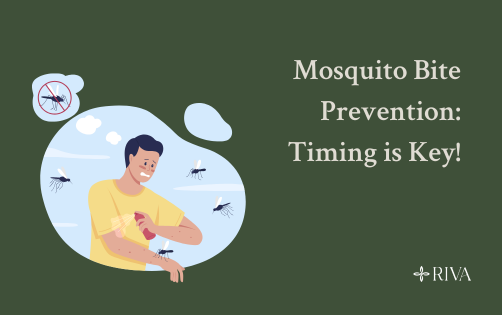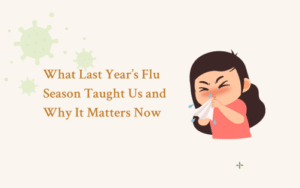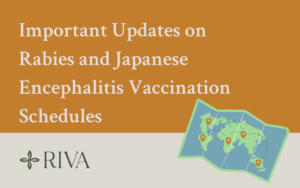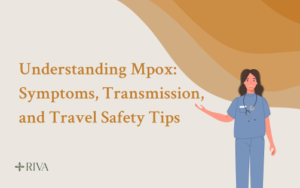Effective Mosquito Bite Prevention for Travellers
If you’re planning to travel to areas where mosquito-borne diseases are prevalent, it’s important to understand the best ways to protect yourself from mosquito bites. Whether you’re heading to Africa, Southeast Asia, or South America, mosquito bite prevention is vital for staying healthy while abroad.
Why mosquito bite prevention matters
Mosquitoes are more than just a nuisance, they’re responsible for transmitting serious diseases, some of which can be life-threatening. Malaria, Japanese encephalitis, Dengue fever, Zika virus, and chikungunya are just a few examples of illnesses spread through mosquito bites. The time of day, the type of mosquito, and the area you’re visiting all play a role in choosing the best prevention methods.
Daytime vs Night time mosquitoes
The first step in preventing mosquito bites is knowing when you need to take extra precautions. Some mosquitoes bite during the day, while others are more active at night.
Night time biters
For those travelling to destinations like Africa, where malaria is common, or Southeast Asia, where Japanese encephalitis is a concern, it’s important to use mosquito repellent from night until day. The mosquitoes responsible for transmitting these diseases are most active at night. During this time, you should use a repellent with at least 40% DEET (Diethyl Toluamide), which is highly effective at keeping mosquitoes away. Additionally, using a mosquito net over your bed can provide more protection while you sleep.
Day time biters
While night time mosquito protection is important, don’t overlook daytime precautions, especially in areas where diseases like Dengue fever, Zika, and chikungunya are widespread. Many mosquitoes that transmit these diseases are aggressive daytime biters, meaning they’re active during the day, especially in the early morning and late afternoon. It’s important to wear repellent throughout the day, particularly in areas like South America, Southeast Asia, and parts of Africa, where day time biting mosquitoes are common.
One key mosquito that you should be particularly wary of is the yellow fever mosquito, which is also active during daylight hours. This mosquito can transmit yellow fever, a potentially fatal disease, found in parts of South America and Africa. This makes it even more important to follow the advice of travel health professionals and use repellent whenever you’re outside.
When and how to use Mosquito repellant
If you’re travelling to a high-risk area for malaria, use repellent from night until day and cover up as much as possible in the evenings and early mornings. For daytime travellers heading to areas with Dengue or Zika, it’s important to use repellant throughout the day.
Choosing the right repellent
DEET is one of the most effective ingredients in mosquito repellent, with 40% DEET being recommended for high risk areas.
- Alternatives to DEET include Picaridin and IR3535, which are also effective but may be preferred by some travellers due to personal sensitivity to DEET.
It’s also important to apply repellent to all exposed skin and reapply it as necessary, particularly after swimming, sweating, or wiping your skin
Additional tips for mosquito bite prevention
While mosquito repellent is a necessary tool in your defence against bites, there are other things you can do to reduce your risk of getting bitten;
- Light-coloured, long-sleeved shirts and trousers can help shield you from mosquito bites. Some clothing is treated with permethrin, an insect repellent, providing an extra layer of protection.
- Mosquitoes tend to avoid cooler environments, so staying in air-conditioned rooms or rooms with proper mosquito screens can help keep them away.
- When sleeping in areas where mosquitoes are prevalent, a mosquito net treated with insecticide can be a life-saving investment, particularly in areas with malaria risks.
- Mosquitoes that carry diseases like malaria are most active at night, particularly during dusk and dawn. If possible, stay indoors during these times or take extra precautions.
Conclusion: Prevention is Key
When it comes to travelling to areas where mosquito-borne diseases are a concern, knowledge is power. It is important to be vigilant about mosquito protection, depending on the time of day. Ensure that you’re applying mosquito repellent from dusk until dawn in regions with night-biting mosquitoes, as well as throughout the day in areas where daytime biters are common.
If you’re unsure about specific recommendations or need more information, don’t hesitate to get in touch with a travel health expert. Safe travels and stay bite-free!
For more advice or if you have any questions about mosquito bite prevention, feel free to contact us at Riva Training. We’re here to help you stay informed and healthy during your travels.




